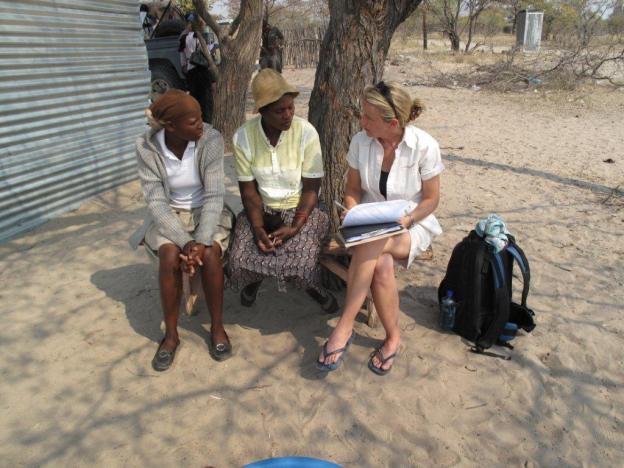In 2008 Sue completed a Master of Business Science (Economics) from the University of Cape Town, South Africa, and recently received a PhD (Resource Economics) at the same university. Having completed coursework at the University of Goteborg in Sweden, the focus of her PhD research measured the socio-economic impact of high-end ecotourism in remote, rural communities adjacent to protected areas, based on over 1800 community surveys in six southern African countries including Botswana, Malawi, Namibia, Seychelles, South Africa, Zambia and Zimbabwe. Her research and academic publications have helped prove beyond doubt that ecotourism, practised responsibly, has had a significant impact not only on the standard of living that rural people engaged in the industry now enjoy, but also on attitudes to conservation and education amongst other things.
Dr Sue Snyman joined Wilderness Safaris in 2008 bringing with her over a decade of experience in the ecotourism industry in southern Africa, including guiding, community development and liaison, camp management and environmental impact assessments as an independent consultant. Sue held various positions at Wilderness Safaris from 2008-2018, including Group Sustainability Manager, Group Community and Culture Manager, as well as the Regional Director of Children in the Wilderness. She then moved to the International Union for the Conservation of Nature (IUCN) as a Senior Programme Officer in the Conservation Areas and Species Programme, coordinating the Biodiversity and Protected Areas Management (BIOPAMA) programme across 24 eastern and southern African countries. She is currently the Research Director for the School of Wildlife Conservation at the African Leadership University.
Other positions include Vice-Chair of the IUCN WCPA Tourism and Protected Areas Specialist Groups (TAPASG), Coordinator of the Communities & Heritage Working Group within TAPAS, Research Fellow at the Environmental Economics Policy Research Unit at the University of Cape Town and Senior Research Fellow at the School of Tourism and Hospitality, University of Johannesburg, South Africa.
Sue possesses a rare blend of both academic and practical skills in the field of rural community development and policy influence garnered over a twenty year career of study, research, strategy development, project implementation and peer review publication focused on south central Africa. She has extensive field experience in Malawi, Zambia, Zimbabwe, Botswana, Namibia and South Africa and more recently expanded her research interests to Rwanda. With a PhD in Economics from the University of Cape Town (2013), an extensive publication and conference presentation record and a proven track record of management and implementation experience in both the NGO and ‘for profit’ fields she brings a structured, thorough, professional and balanced approach to any project.
As vice-chair of the IUCN Tourism and Protected Area Specialist Group and Programme Director for the multi-national NGO Children in the Wilderness, she has demonstrated an ability to work simultaneously with and effectively manage multiple cultures in geographically dispersed teams, as well as an ability to communicate with and work at all levels, from government officials to rural community members. Through the afore-mentioned roles and as a research associate at the University of Cape Town’s Environmental Policy Research Unit she ensures that she brings her extensive experience and practical lessons to a broader audience through robust and credible peer-reviewed research published in host of international journals. Sue firmly believes in the ability of the private sector, government and NGOs to make a difference in poverty alleviation, biodiversity conservation and rural development.
Core competencies include:
Project management, statistical analysis, stakeholder engagement, building strategic partnerships, community tourism development, strategic planning and implementation, financial analysis, community development, community engagement, protected area management effectiveness, governance and equity, development reporting, monitoring and evaluation, regional coordination, innovation and marketing new approaches
